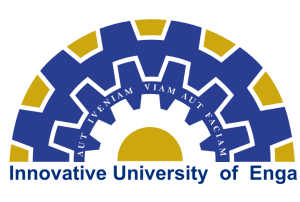EDEC215 | Child Growth & Development | Year 2 | Semester 2 | 2025
Welcome to Child Growth and Development study. This course presents the details of how and why children grow, develop, and learn. Child development refers to the physical, cognitive, emotional, and social changes that occur in children from birth through adolescence. The student will study how cognitive or ability to think and remember changes over the first 20 years or so of life. And how the person’s emotions, psychological state, and social relationships change throughout childhood and adolescence. The course will help the trainees to understand the key domains of child development and the stage of changes. The course contents will be covered in the next 13-14 weeks.
EDEC214 | Learning Bible and Moral Values | Year 1 | Semester 2 | 2025
A course designed to equip early childhood educators with the knowledge, skills, and strategies to integrate biblical teachings and Christian moral values into early learning environments. Emphasis is on the spiritual and moral development. The trainees will acquire appropriate knowledge on moral, ethical and biblical aspects of human life so that they can create an early learning environment where the children are behaved appropriately and live a good character influential person in their respective societies. The course is planned to be covered within 13-15 weeks of a semester.
EDEC213 | Inclusive Learning in Early Childhood | Year 2 | Semester 2 | 2025
This course will enable the beginning early childhood educators to explore the principles, policies, and practices of inclusive education in early childhood settings. Students will learn to identify and support the diverse needs of young children, including those with disabilities, developmental delays, and from marginalized communities. The course emphasizes creating inclusive learning environments, adapting curricula, and collaborating with families and professionals to ensure equitable access and participation for all children. The course will take 13-14 weeks for studies in order to cover all its contents.
EDEC108 | STEAM Integration in The Early Years | Year 1 | Semester 2 |2025
This unit will enable the student-teachers to teach Science Technology Engineering Arts and Mathematics (STEAM) in early childhood. Early STEAM education enables young children to become confident and involved learners beyond primary school education. They developed good observation skills, critical thinking skills and problem- solving that all form part of their inquiry-based learning activities. Such skills are also important to all other areas of the curriculum that focus on applying knowledge rather than remembering them. Other concept on STEAM includes curiosity, creativity and collaboration. STEAM education must start in early childhood because young children are natural scientists and love to explore the world around them, test their ideas and share discoveries through a sense of wonder and play. This course is planned to be covered in 13-15 weeks within a semester.
EDEC107 | Working With Young Children | Year 1 | Semester 2 | 2025
This course provides early childhood education practitioners with the foundational knowledge, values, attitudes and practical skills required to work effectively with young children from birth to eight years. It emphasizes professional ethics, reflective practice, communication skills, teamwork, time management and fostering children's development and wellbeing. Upon completion of this course the learners will be equipped to work cooperatively within early childhood services, communicate with diverse individuals, manage their time effectively and continuously improve their professional practice at the workplace. The contents for this course will be covered within 13-15 weeks before their summative assessment.
EDEC106 | Developing Child’s Creative Thinking Skills | Year 1 | Semester 2 | 2025
This course will enable early childhood beginning teachers and carers to be creative within early learning environments. They have to know that a supportive atmosphere, where caregivers and the environment are both nurturing and engaging can significantly enhance children's learning experiences. Students will gain valuable insights into the positive impacts of creative practices on early childhood education. They will develop resilience and positive attitudes essential for navigating challenges when working with young children. Additionally, the course emphasizes diverse cultural contexts and the importance of adapting materials and strategies accordingly. Through hands-on projects and collaborative learning, students will learn to produce and implement creative educational resources that are inclusive and culturally relevant. On the completion of this course, the students will be equipped with the skills and knowledge to cultivate imaginative thinking skills and impart appropriately to the children in the workplace.
EDEC105 | Embracing The Cultural Diversity in Early Childhood Settings | Year 1 | Semester 2 | 2025
This course will enable the future early childhood educator to focus on the rich cultures within Papua New Guinea. The course will equip student-teachers with the appropriate knowledge and skills to recognize and celebrate the diverse backgrounds of children in their care. The nation with over 800 languages and numerous cultural practices across its 22 provinces, PNG holds cultural richness and diversity. Additionally, the study in this course will elaborate on classroom learning differentiation, races, tribes, religious and other social and cultural diversities. The students will cover the contents of this course in the next 13-15 weeks of a semester.
EDEC216 | Early science - living things | Semester 2 | 2025 | Mr. Elvis Gele
This course is design for year two students undertaking early childhood education studies. The course will enable future early childhood educator to explore and acquire appropriate knowledge and skills in the early science. They will assist the early learners to learn about living organisms and emphasizing the importance of nurturing curiosity and scientific inquiry. The students will explore effective strategies to help children to learn more on the characteristics and needs of all living things in the world. The course is planned to be covered within 13-15 weeks in a semester.
